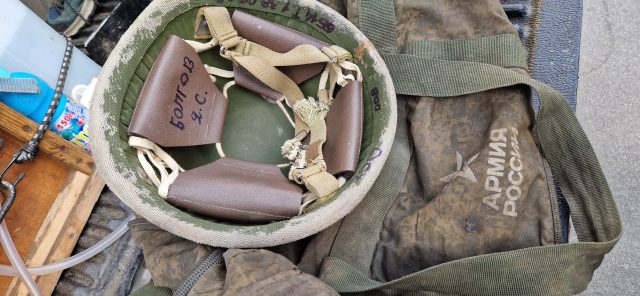The notice contains a brief systematic description of the pretrial investigation in criminal proceedings carried out in accordance with the legislation of Ukraine, the definitions of the main terms, rights and obligations of the parties, as well as the assignment of functions between the investigator and the prosecutor.
Beginning of pretrial investigation (according to Article 214 of the Criminal Procedure Code of Ukraine)
Pretrial investigation is the stage of criminal proceedings, which begins from the moment of entering information about a criminal offense into the URPI (Unified Register of Pretrial Investigations) and ends with the closure of criminal proceedings, or the sending of an indictment to court, or a request for the application of coercive measures of a medical or educational nature, or a request for the release of a person from criminal liability.
One of the subjects that implement the tasks of criminal justice is the investigator, who applies the provisions of the criminal procedural legislation in his professional activity.
An investigator is an official of an internal affairs body, a security body, a body that monitors compliance with tax legislation, a body of the State Bureau of Investigation, authorized within the scope of competence provided for by the Code of Criminal Procedure to carry out a pretrial investigation of criminal offenses.
The prosecutor is also a key subject on the prosecution side.
Accordingly, the investigator, the prosecutor immediately, but no later than 24 hours after the submission of:
– statements,
– notification of a committed criminal offense or
– after he independently discovers from any source circumstances that may indicate the commission of a criminal offense;
is obliged to enter the relevant information into the Unified Register of Pretrial Investigations and start the investigation.
The statement or notification about the commission of a criminal offense must contain
1) surname, first name, patronymic (first name) of the victim or the applicant;
2) a brief summary of the circumstances that may testify to the commission of a criminal offense, given by the victim, or by the applicant (photos, video footage of the commission of the criminal offense, documents confirming the relevant facts, etc. may be provided);
3) preliminary legal qualification of a criminal offense with an indication of the article (part of the article) of the Law of Ukraine on Criminal Liability/
The applicant is a natural or legal person who submitted a statement or notification of a criminal offense to a state authority authorized to initiate a pretrial investigation, and is not a victim.
The applicant has the right: 1) to receive from the body to which he submitted the application, a document confirming its acceptance and registration; 2) receive an extract from the Unified Register of Pretrial Investigations; 3) submit items and documents to confirm your application; 3) to receive information about the completion of the pretrial investigation.
Information on the commission of a criminal offense is submitted in the form of a statement or notification of a committed criminal offense both orally (presented by an individual and executed in writing by an official) and in writing (sent by mail or delivered by an individual to the relevant body, institution in person).
If a person directly applies to an investigator, prosecutor or other official authorized to accept and register statements and reports about criminal offenses, a statement about a committed criminal offense is accepted or a protocol for acceptance of an oral statement about a criminal offense is drawn up.
Both the applicant and the victim can apply with a statement or notice. The applicant is a natural or legal person who submitted a statement or notification of a criminal offense to a state authority authorized to initiate a pretrial investigation, and is not a victim (Article 60 of the Criminal Procedure Code).
According to Art. 55 of the Code of Criminal Procedure, victim is a natural person to whom moral, physical or property damage was caused by a criminal offense, as well as a legal entity to whom property damage was caused by a criminal offense. The rights and obligations of the victim arise in a person from the moment of submitting a statement about the commission of a criminal offense against him or a statement about involving him as a victim.
The victim is given a notification about his procedural rights and obligations by the person who accepted the statement about the commission of a criminal offense (Part 2, Article 55 of the Criminal Procedure Code). The second copy of the notification is attached to the materials of the pretrial investigation with a corresponding note that it was handed over to the victim.
On the acceptance and registration of the application, the person who submitted it receives a document on the acceptance and registration of the application from the body to which she applied (Article 60 of the Code of Civil Procedure).
In the Unified Register of Pretrial Investigations, the date of information entry is automatically recorded and the number of the criminal proceedings is assigned.
The pretrial investigation begins from the moment of entering information into the Unified Register of Pretrial Investigations.
In urgent cases, the inspection of the scene of the incident may be carried out before entering information into the Unified Register of Pretrial Investigations, which is carried out immediately after the completion of the inspection.
An investigator, a prosecutor, other official authorized to accept and register statements and notifications about criminal offenses are obliged to accept and register such a statement or notification.
Refusal to accept and register an application or notification of a criminal offense is not allowed.
If information about a criminal offense is entered into the Unified Register of Pretrial Investigations by the prosecutor, he must immediately, but no later than the next day, in compliance with the rules of jurisdiction, transfer the materials he has to the pretrial investigation body and instruct the conduct of the pretrial investigation.
Investigative actions
After registration of criminal proceedings, the investigator carries out all possible investigative actions aimed at obtaining (collecting) evidence or checking already received evidence in a specific criminal proceeding, namely:
• interrogation of witnesses and victims;
• recognition of persons or things, documents, objects;
• inspections of the place where a criminal offense was committed, objects, documents or other media that contain information about a committed criminal offense;
• carrying out searches, inspections of premises or possessions of individuals/legal entities, temporary access to things and documents on the basis of the decisions of the investigating judge;
• conducting investigative experiments, surveys;
• assignment of the necessary forensic expertise to ascertain the cause of death, the severity of the bodily injuries received, the value of the damaged property and damages caused by criminal offenses;
• to receive samples necessary for examination;
• demand from enterprises, institutions and organizations, officials the objects, documents and information necessary for the pretrial investigation;
• carry out undercover investigative (search) actions in serious and especially serious criminal offenses, provided when it is impossible to obtain the evidence necessary for the pretrial investigation in another way.
Investigative (search) action, which is carried out at the request of the defense party, the victim, the representative of the legal entity in respect of which the proceedings are being conducted, is carried out with the participation of the person who initiated it and (or) his defender or representative, except for cases when due to the specifics of the investigative (search) action is impossible or such a person refused to participate in it in writing.
Notification of suspicion
The person should be notified in writing of the suspicion in the manner determined by the criminal procedural legislation, in coordination with the procedural manager (prosecutor), if there is sufficient evidence for suspecting a person of committing a criminal offense, detaining a person at the place of committing a criminal offense or immediately after its commission.
In the conditions of martial law, after notifying a person of suspicion, it is possible to obtain permission from the investigating judge to conduct a special pretrial investigation, which allows for the conduct of all actions provided for by the legislation of Ukraine in the absence of the suspect.
A special pretrial investigation is carried out on the basis of the decision of the investigating judge in criminal proceedings regarding the crimes provided for in Articles 109, 110, 110–2, 111, 111-1, 111-2, 112, 113, 114, 114-1, 114-2, 115, 116, 118, Part 2 of Art. 121, Part 2 of Art. 127, parts 2 and 3 st. 146, Art. 146-1, 147, parts 2-5 of Art. 191 (in case of abuse by an official of his official position), Art. 209, 255-258, 258-1, 258-2, 258-3, 258-4, 258-5, 348, 364, 264-1, 365, 365-2, 368, 368-2, 368-3- 3, 368-4, 369, 369, 370, 379, 400, 408, 436, 436-1, 437, 438, 439, 440, 441, 442, 443, 444, 445, 446, 447 of the Criminal Code of Ukraine, regarding the suspect , except for a minor who is hiding from investigative bodies and courts in the temporarily occupied territory of Ukraine, in the territory of a state recognized by the Verkhovna Rada of Ukraine as an aggressor state, with the aim of evading criminal responsibility and/or suspect declared an international wanted person.
Completion of the pretrial investigation
The prosecutor is obliged to perform one of the following actions as soon as possible after notifying the person of the suspicion:
1) close criminal proceedings;
2) apply to the court with a request to release the person from criminal responsibility;
3) apply to the court with an indictment, a request to apply coercive measures of a medical or educational nature.
Having recognized the evidence collected during the pretrial investigation as sufficient for drawing up an indictment, the prosecutor or the investigator on his behalf is obliged to notify the suspect, his defense counsel, legal representative and the defender of the person against whom it is intended to apply coercive medical measures or of an educational nature, about the completion of the pretrial investigation and providing access to the materials of the pretrial investigation.
The civil plaintiff, his representative and legal representative, the civil defendant, his representative are notified of the opening of the materials by the parties to the criminal proceedings, after which these persons have the right to familiarize themselves with them in the part that relates to the civil lawsuit, according to the rules set forth in this article.
The parties to the criminal proceedings, the victim, the representative of the legal entity in respect of which the proceedings are being conducted, are given sufficient time to familiarize themselves with the materials to which they have been given access.
In case of delay in reviewing the materials to which access has been granted, the investigating judge, at the request of the party to the criminal proceedings, taking into account the volume, complexity of the materials and the conditions of access to them, is obliged to set a time limit for reviewing the materials, after which the party to the criminal proceedings or the victim, the representative of the legal entity in respect of which the proceedings are being carried out are considered to have exercised their right to access the materials.
When all the participants in the criminal proceedings have been familiarized with the materials, the suspect and his defense attorney are handed the indictment and the register under the receipt.
The indictment is drawn up by the investigator, after which it is approved by the prosecutor. The indictment may be drawn up by the prosecutor, in particular if he disagrees with the indictment drawn up by the investigator.
Subsequently, the indictment is sent to the court for substantive consideration.
Commissioned by Maidan Monitoring Information Center





